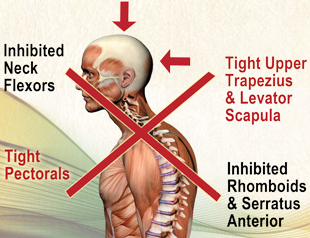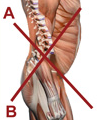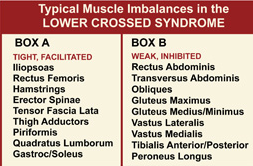POSTURAL
EVOLUTION : DEVOLUTION
Spending Far too Much Time Stooped Over a Dental Chair?
Integrated Structural Body Work (ISBW) & Conditioning Exclusively for Dentists
Career Survival of the Fittest
“The greatest medicine is to show people how not to need it” – Hippocrates
“Let us help you get the “Work-Out” of your Day
& Put Life Back in to your Work”
Benefits:
- DECREASE Restriction in the Upper Spine & Cervical Spine
- DECREASE Lower Back issues
- DECREASE Sore shoulders
- DECREASE Stiff neck muscles & limited Range of Motion
- HAVE MORE ENERGY
- DON’T LOOK & FEEL YOUR AGE!
“The Pankey Institute in Miami evaluated the health of 2,400 dentists. It found that the dentist’s life was characterized by “Dormancy, Degeneration and Stress” (Not to be confused with Doctor of Dental Surgery). Dentists do not exercise enough to prevent progressive deterioration of connective tissue, small blood vessels, muscles and circulation in general.”
“Habitual in-correct postural movement patterns can negatively alter structure & physiological function, which can manifest themselves well before the symptoms of pain & biomechanical dysfunction appear…”
“Shape determines Function & Function determines Shape”
Take this Little Quiz to See if ISBW is Right for You
[ ] Yes [ ] No – Have you been practicing for 7 years or more?
[ ] Yes [ ] No – Would you like to continue practicing, with minimal strain on your body?
[ ] Yes [ ] No – Do you suffer from occasional back stiffness or worse?
[ ] Yes [ ] No – Do you have any neck or shoulder pain and / or stiffness?
[ ] Yes [ ] No – Do you feel stiff and inflexible?
[ ] Yes [ ] No – Do you feel run-down at the end of the day?
[ ] Yes [ ] No – Do feel you can’t move around like you used to?
[ ] Yes [ ] No – Would you like to gain back some or all of the height you have lost over the years?
[ ] Yes [ ] No – Does your stomach protrude more than it should, no matter how many abdominal exercises you do?
[ ] Yes [ ] No – Do you work out regularly, but your workouts have not improved your posture or your flexibility?
[ ] Yes [ ] No – Do you work out regularly, but your workouts have not improved your waistline or your shape?
[ ] Yes [ ] No – Are you working out the same way all the time?
[ ] Yes [ ] No – Would you like to perform better in physical activities and sports, with more speed, endurance, strength, vertical reach, and vertical jump?
[ ] Yes [ ] No – Do you want to maintain as much energy, vigor, and physical work capacity as possible as you age?
[ ] Yes [ ] No – Do you look & feel your age?
If your answer is “Yes” for more than two of above questions, it is possible that your profession is becoming a problem for you!
As a dentist, you are mostly:
- Seated
- Bent over
- Elevating one shoulder
- Rotating your head to one side for long periods
- & Working 10 o’clock to 2 o’clock positions
With the passage of time, all these movements can increase the Risk Factors for:
- Neck & Shoulder Pain
- Psychological Issues
- Wrist & Hand Issues
- Lower Back Pain
Distorted Standing posture, which is reflective of what Dr. Janda P.T. PhD. Described as:
Here are possibly a few more symptoms of prolonged distorted posture…
- Foggy Brain
- Strained neck
- Sore shoulders
- Heart disease
- Over productive pancreas
- Colon cancer
- Weak & Tight Abdominals
- Weak Gluteal Muscles
- Poor Circulation in the lower Extremities
- Stiff neck muscles & limited Range of Motion
- Tight Calf Muscles
- Soft Bones
- Tight Hips
- Lack of Clavicle Rotation
- Lower Back issues
- Abnormal foot function (resulting in abnormal pronation)
- Restricted T-spine & C-spine
- Pelvic imbalances
- Poor core stabilization & awareness
…These issues are somewhat unique to any seated profession.
According to one study, the reasons for early retirement amongst dentists, from most prevalent to least, range from:
- 37% Musculo-Skeletal Issues
- 26% Cardiovascular Issues
- 20% Neurological Issues
- 9% Tumors
- 8% Other







